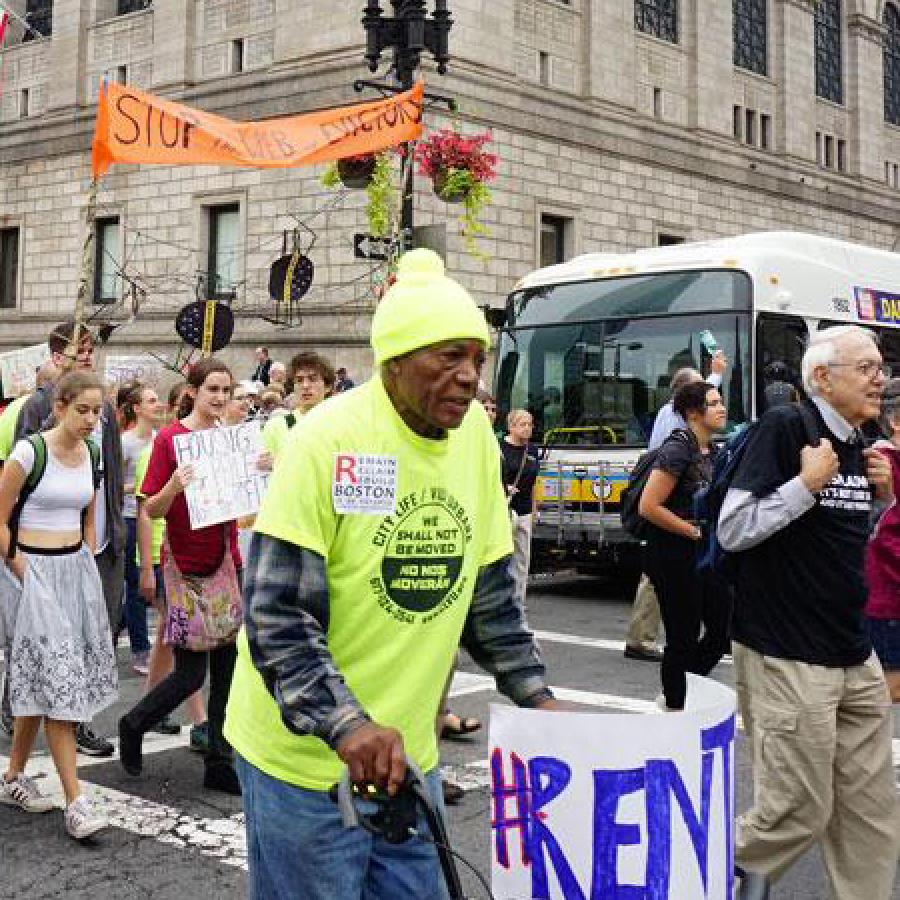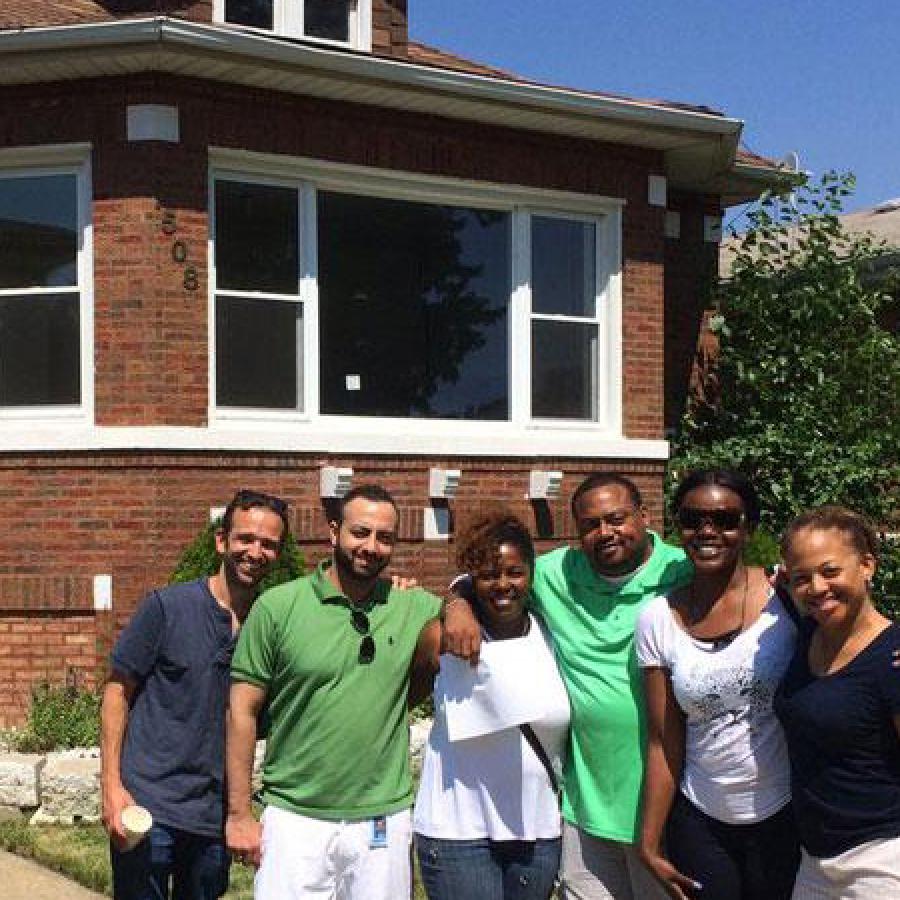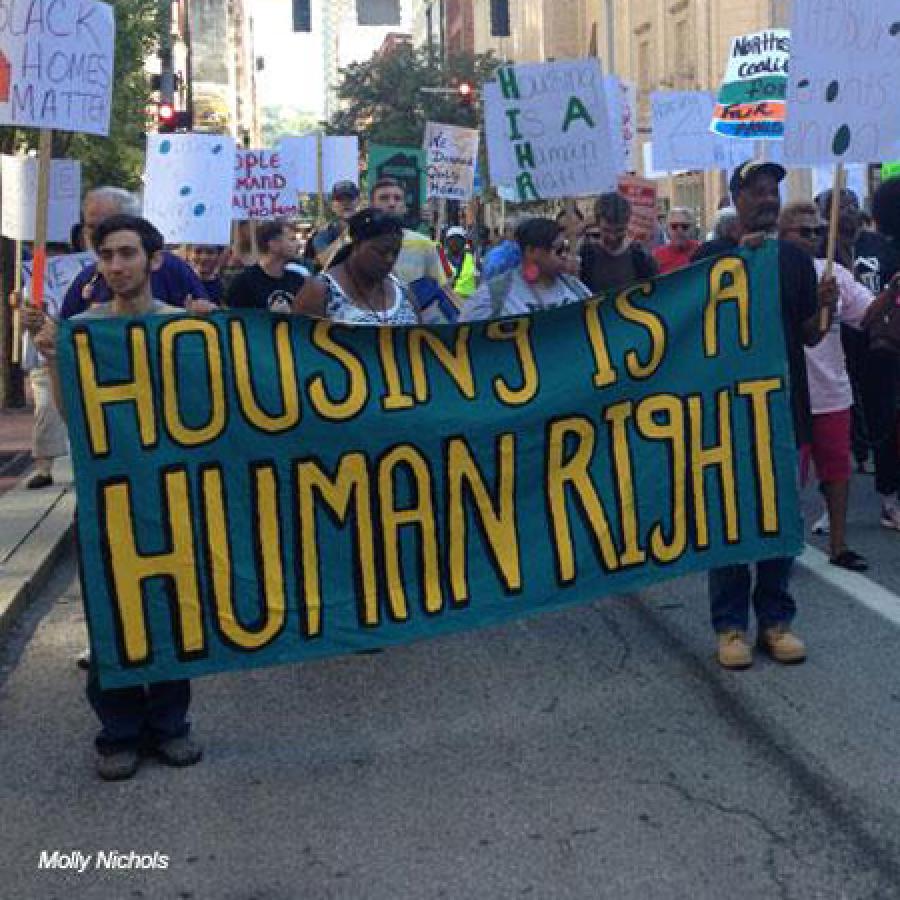Through Outreach and Education, Seattle Empowers Workers and Employers to Embrace Fair Labor Standards
As many advocates know only too well, passing good policies is only the first step toward building a more equitable economy. Without support for implementation and enforcement, policy reforms often fall short of their intended impact. This was the challenge facing Seattle's leaders in 2014: after a prolific few years of passing labor reforms to raise the minimum wage, mandate sick leave, combat wage theft, and protect formerly incarcerated workers, the city needed to ensure that workers and employers could put these new laws into action.
Enter the Seattle Office of Labor Standards (OLS). Founded in 2015, OLS is leveraging neighborhood organizations both to help employees at increased risk of labor violations understand their rights and to help employers comply with new job quality standards.
"OLS wants every worker to benefit from all of Seattle's labor laws, but for that to happen you need to apply a racial justice analysis to identify which workers and families are not benefitting from these standards and why," said Claudia Alexandra Paras, OLS's community liaison and head of its Community Outreach and Education Fund (COEF).
Improving racial and social equity in labor practices is an especially important goal for Seattle, given the persistent income disparities and workplace violations experienced by its immigrant communities and communities of color. People of color and immigrants have been leading population growth in Seattle for decades, yet continue to receive disproportionately lower wages when compared to White residents. About 17 percent of Black residents and 16 percent of Latino immigrants in Seattle are "working poor," meaning they live at or below 200 percent of the federal poverty level despite working full-time.
Workplace violations are common for many. "In every training or presentation we do, about half the room will raise their hands when we ask 'how many of you have experienced one of these workplace violations,'" said Sam Keller, program director at the Fair Work Center and leader of the Fair Work Collaborative, a COEF grantee. "Industries already notorious for this type of behavior, such as construction and restaurants, are targeting their immigrant workers as easy marks for mistreatment. The work of letting people know that they don't have to take it and they do have options for justice is more important than ever."
Research shows that low-wage workers experience the highest rates of workplace violations, especially female workers, workers of color, immigrant and refugee workers, LGBTQ workers, and youth — groups that are the focus of OLS's COEF and its counterpart, the Business Outreach and Education Fund (BOEF). Using these twin efforts, the city has devoted robust financial and staff resources toward reaching more than 80,000 vulnerable workers and 8,000 people in the business community with education and support around fair labor practices.
"Workers and business owners from vulnerable communities are less likely to trust government — with good reason," noted Dylan Orr, director of OLS. "We recognized that if we were going to reach them, we were going to have to use community relationships with both employees and employers to make that happen."
Spearheading funds for outreach and education
Taking inspiration from San Francisco's outreach efforts which partner with community-based organizations to educate employees, the Seattle Office of Labor Standards opened in April of 2015 with dedicated funds to conduct outreach to educate workers about labor laws. The OLS subcontracted its first $1 million Community Outreach and Education Fund grant to 11 local community organizations and collaborative partnerships that reflected the racial, ethnic, and language differences among diverse communities in the city. Within the first 15 months, these community organizations reached an estimated one million people through media activities, and conducted 1,033 outreach and training events in 13 languages that reached 83,000 workers. Earlier this year, COEF awarded its second-round of funding — in the amount of $3.3 million — to eight different organizations and collaborative partnerships for 2017-2019.
Outreach has taken many forms, from flyering to door-to-door outreach to community events and presentations. At first, the community organizations faced challenges in engaging workers; but over time, awareness of worker's rights and trust in reliable enforcement began to grow within the communities, among workers and their families.
"A lot of this has been about trust-building, between community organizations, community members, and our office, so that people truly believe we're here to help and support them, not just police labor laws," Orr said.
Paras shared a story of a series of trainings that were held for Latina women by Casa Latina, a COEF partner, which led to fruitful discussions about work environments for many people within their community.
"After the sessions, a woman practically dragged her husband into Casa Latina because she knew his rights were being violated and wanted him to speak up," Paras said. "When we focus on the most vulnerable workers, we're not just righting a wrong, we're building leadership in that community and empowering them to know their rights and feel comfortable coming forward," she explained. "The impact of that kind of change is incalculable."
Keller shared a story about a single mother from Mexico who was nearly evicted because her employer refused to pay her $4,800 for three months of work. Through a referral by Fair Work Collaborative partner Got Green, she was able to get the legal help she needed to fight back against this wage theft.
Extending labor law support to businesses
Following the COEF's initial success, OLS created the Business Outreach and Education Fund (BOEF) in late 2016 that provided $475,000 for 14 community organizations to provide education and technical assistance to small-business owners. This Fund emphasized employers not typically served by traditional outreach methods: businesses owned by low-income and historically disenfranchised communities, including people of color, immigrants and refugees, as well as women, veterans, people with disabilities, and the LGBTQ community.
"There's a deep hesitation to contact OLS or do any work with the city directly. We are a regulatory agency, and we're perceived to be bringing down the law at all costs," said Darius Foster, OLS business liaison and head of the BOEF. "Community partners help break that barrier, but it's a slow process because the political climate has made many immigrant and minority business owners very wary of government."
In the first two quarters of 2017, BOEF grantees have reached more than 121,000 people through media communications, and 8,700 people through 306 outreach and training events held in seven languages other than English.
"You're dealing with small-business owners who are so busy running their businesses, plus you have different cultures and languages that all require their own way of doing outreach," noted Martha Lee, president of the Ethnic Chambers of Commerce Coalition, a BOEF grantee. "In some communities you can really only do one-on-one consultations, for others you may leverage the opportunity to join an existing community event. It's so important to be familiar with the community."
Building a culture of compliance and workplace justice
Quality jobs that provide a living wage and benefits are the backbone of a strong economy, making labor standard enforcement an issue of both moral and economic significance. To staff at OLS, the link between well-protected workers and a stronger local economy is a no-brainer.
"The bottom line is when you take care of your employees, you get employees who are loyal, who feel valued and committed to the work, you get lower turnover and the ROI [return on investment] on that will come back to the employer," Foster said. "Plus, when those working in low-income sectors have higher wages, they're able to purchase more and put money back into the economy."
This viewpoint is supported by research: a 2011 analysis of California found that minimum wage violations alone resulted in 40,800 additional families living under the poverty line and $74 million in lost federal income taxes and$14.4 million in lost state income taxes. A 2014 analysis from the Economic Policy Institute estimated that wage theft could be costing workers $50 billion per year.
These macro-level arguments are part of a larger culture shift that OLS is trying to enact in Seattle, both in how employers think about employees and their rights, how communities recognize their power and voice, and how business and worker advocates work together.
"My hope is that the small-business community can be a leader in high-road business culture," Paras noted. "If we can lift up small-business owners as leaders in creating good jobs, there really is no excuse for any other businesses."


